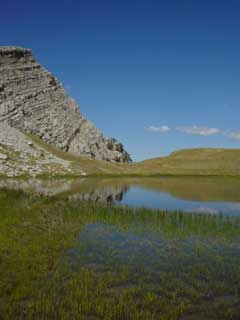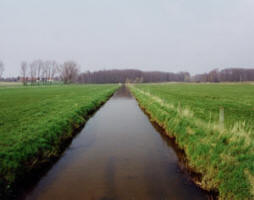 EMerging POllutants in Water and WastewatER in Tunisia
EMerging POllutants in Water and WastewatER in Tunisia
The transformation partnership project EM-PO-W-ER Tunisia (EMerging POllutants in Water and WastewatER in Tunisia) intends to initiate a dialogue at scientific, educational, socio-cultural, and political levels on probably the most emerging topic in the Middle East “Water and its Scarcity”. Water is essential for the development of the area in terms of food production, health, and prosperity, thereby supporting the transformation process and political stability through meeting the demands of the people.
In the course of this project, which started in March 2012, a professional and intercultural dialogue between Tunisian and German scientists, students, and stakeholders will be initiated that helps find solutions not only in terms of technical measures, but also for common intercultural understanding and trust.
| Project number | 10.1002/chemv.201200065 | ||
|---|---|---|---|
| Subject(s) | AGRICULTURE , ANALYSIS AND TESTS , CHARACTERISTICAL PARAMETERS OF WATERS AND SLUDGES , DRINKING WATER , DRINKING WATER AND SANITATION : COMMON PROCESSES OF PURIFICATION AND TREATMENT , ENERGY , HEALTH - HYGIENE - PATHOGENIC MICROORGANISM , HYDRAULICS - HYDROLOGY , INFORMATION - COMPUTER SCIENCES , MEASUREMENTS AND INSTRUMENTATION , METHTODOLOGY - STATISTICS - DECISION AID , PREVENTION AND NUISANCES POLLUTION , RISKS AND CLIMATOLOGY , SANITATION -STRICT PURIFICATION PROCESSES , SLUDGES , WATER DEMAND , WATER QUALITY | ||
| Acronym | EM-PO-W-ER Tunisia | ||
| Geographical coverage | Tunisia,Germany, | ||
| Budget (in €) | 0 | ||
| Programme | Transformation Partnership | ||
| Web site | http://www.chemistryviews.org/details/ezine/2069321/EM-PO-W-ER_Tunisia.html | ||
| Objectives | The Project EM-PO-W-ER Tunisia aims at building a network between universities, research centers, stakeholders, and policy makers to monitor the current situation of wastewater reuse in Tunisia and other Arab Countries with an emphasis on emerging pollutants in reclaimed wastewater and irrigated agricultural environments (water bodies, soil and groundwater) and thereby building capacity of students and researchers. Also the links to Euro-Mediterranean Countries will be enhanced through the German partner. This aims to develop a greater R&D follow up project for the entire Mediterranean Sea Region thereby linking South and North.
|
||
| Results | The first year of the project will focus on establishing the coordination and management structures, data mining and evaluation regarding the topic of emerging pollutants, organization of a stakeholder workshop and discussing the project aims and course with scientists from MENA (Middle East and North Africa), MESAEP (Mediterranean Scientific Association of Environmental Protection), and Exceed, as well as starting the exchange training program for residual analytical techniques. 2013, in the second year of the project, it will see the selection of experimental sites and analysis of water and soil samples for emerging pollutants. The third year will focus on continuing the analysis and extending the collaboration as well as organizing an international symposium in Tunisia on emerging pollutants in water bodies.
|
||
| Period | [01/03/2012 - 28/02/2013] | ||
 you are not logged in
you are not logged in





